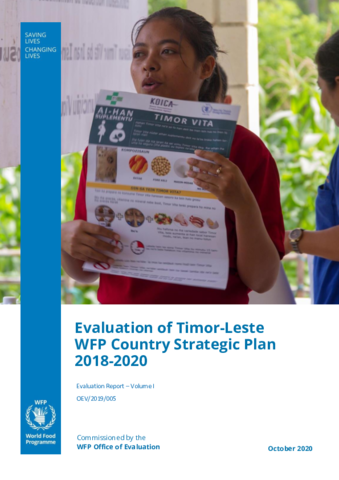
The evaluation was commissioned by the independent Office of Evaluation to provide evaluative evidence for accountability and learning to inform the design of the next WFP Country Strategic Plan (CSP) in Timor-Leste.
Conducted between September 2019 and April 2020, the evaluation assessed WFP’s strategic positioning and role and the extent to which WFP has made the strategic shift expected by the CSP; WFP’s contributions to outcomes; efficiency; and the factors that explain WFP performance.
The evaluation concluded that:
- Achieving the major institutional restructuring set out by the Integrated Road Map and the associated shift from delivering to enabling requires a period of time going beyond the CSP cycle evaluated. The country office is at a transitional stage when many of its operational structures, procedures, staffing and skills still reflect the earlier reality.
- The evaluation identified benefits from increased collaboration between WFP and the government as well as other United Nations organizations to strengthen CSP implementation.

